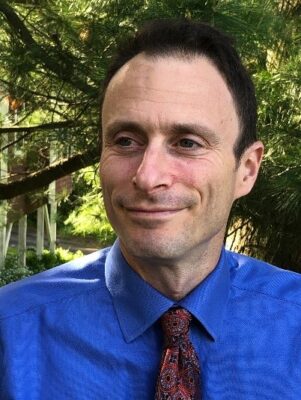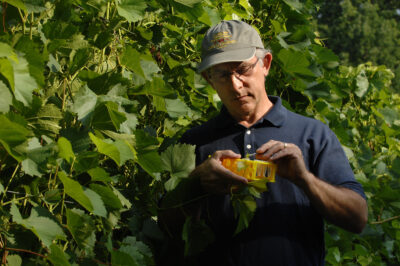Research Program
Since its creation in 1985, NYWGF has sponsored an ambitious and comprehensive program in close coordination with the industry and academia. As with the promotion program, private sector funding is required to leverage the state matching funds. NYWGF’s annual research budget is normally between $350,000-$500,000 to support dozens of individual projects, mostly conducted by Cornell University’s New York State Agricultural Experiment Station in Geneva.
The private sector funds come from various organizations, businesses and individuals to support the three main areas of research: viticulture (grape growing), enology (winemaking), and wine and health. The state matching funds are allocated in proportion to the respective amounts of private sector funds supporting each category.
Particularly in the case of viticulture, NYWGF’s research committee and Board of Directors solicit recommendations from the Lake Erie Regional Grape Research and Extension Program, an industry committee of processors who conduct a thorough review of all proposals submitted. Once NYWGF receives their recommendations, the Foundation’s research committee makes final allocations to individual projects.
Like the promotion program, the research program is enhancing NYWGF’s overall strategic goal: “To have the New York grape and wine industry recognized as a world leader in quality, productivity, and social responsibility.”
Accepting Proposals Now!
The Research Committee of the Board of Directors now welcomes new proposals for the 2023-2024 fiscal year. Proposals are due by January 17th, 2023.
The full RFP, including this years research priorities, and templates for proposals, budgets, and final reports can be found at newyorkwines.org/researchers or click below.
Funded Research Projects
For 35 years, NYWGF has annually distributed funds to projects that provide the New York State wine and grape industry with short-term solutions and long-term strategic directions.
Market Research
The New York Wine Tourism Marketing Toolkit was created to provide practical marketing advice on how to increase visitation to tasting rooms and elevate visitors’ experience, thus making New York State a world premier wine tourism destination. The toolkit includes profiles of three potential visitor targets who exhibit a higher inclination to visit a New York winery. These profiles are coupled with recommended marketing strategies to motivate them to visit. The toolkit offers specific operational tactics that wineries and wine trails can deploy to generate greater brand loyalty from the visitor targets.
Related News

Mystery Shoppers Reveal Wine Tasting Room Trends in New York State
The New York Wine & Grape Foundation is dedicated to supporting our members’ business development in a rapidly changing world. Along with the myriad of services and seminars we provide throughout the year, NYWGF is often able to take advantage of new opportunities that arise to benefit our members and the industry. In the Spring and Summer of 2022, NYWGF’s longstanding relationship with the WISE Academy resulted in the opportunity to provide ten Tier 3

Expanding the range of rapid analysis approaches to semi-polar volatiles and non-volatile precursors in grapes
Targeted measurements of volatiles or volatile precursors in grapes are useful for grape and wine quality evaluation, but these analyses are typically slow, and routine fee-for-service analyses are typically prohibitively expensive. Our group has previously demonstrated that sorbent sheets (SPMESH) could be used for rapid extraction of non-polar odorants from sample headspace. In the past year, we evaluated two novel extensions of SPMESH to make it more appropriate for analysis of semi-polar, lower volatility and

New York Wine & Grape Foundation Announces 2023 Research Themes
The New York Wine & Grape Foundation Research Committee is working to enhance the quality, focus and transparency of the annual research program funded by the Foundation. Towards that end, the committee is now seeking additional review and comment from industry members so that we may finalize the proposed research themes and use those themes to solicit and select research proposals for funding in 2023. The proposed research theme areas are as follows: VITICULTURE: Mechanization